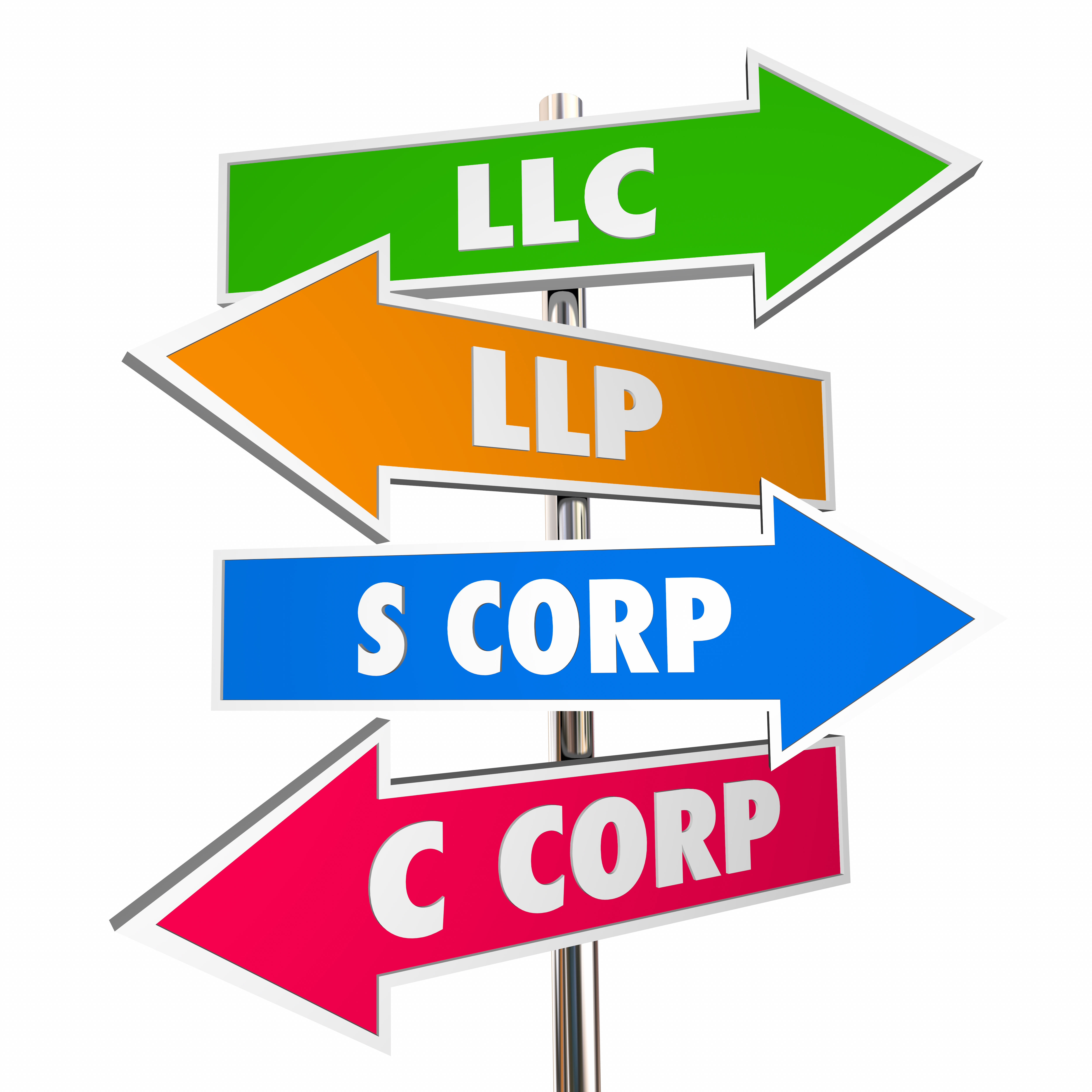A limited liability company or LLC is a simple business structure. The owner receives the benefits of a pass-through taxation of a partnership or sole proprietorship and the limited liability of a corporation.
What does this mean? What is pass-through taxation? Is limited liability important? Keep reading to find out…
Pass-Through Taxation vs. Double Taxation
Both partnerships and sole proprietorships offer the owners the benefits of pass-through taxation. Pass-through taxation means that the entity itself does not pay taxes, only the owners report the profit or losses in their individual tax returns.
The partnership passes through any profits and losses to its partners. Each partner will include his or her share of the profits or losses on his or her individual tax return. Income from the business is only taxed once, when the partners include it in their tax return.
In the case of sole proprietorships, all of the income and expenses and deductions from operating the business passes through the owner. They are reported on the owner’s individual tax return. The owner can report both the income and the losses from the sole proprietorship. Once again, income from the business is only taxed once, when the owner includes it in his or her tax return.
Corporation Double Taxation
A corporation in contrast is a complete separate entity, legally authorized to act as a person. The corporation is required to file its own tax return. Profits and losses from the corporation are taxed at the corporation level. Any distributions made to the owners of the corporation are also taxed at the individual level, therefore creating “double taxation”. Losses on operations of the corporation are trapped at the corporation level and will not be utilized until the corporation becomes profitable.
A limited liability company structure allows income to flow to the owner or owners. The income and losses are reported on the individual’s tax return avoiding double taxation.
Personally Liable
You want to have limited liability meaning that your personal assets are not at risk. When you have limited liability, your personal assets (such as house or car) cannot be recovered by business debtors.
The biggest downside to operating a business as a sole proprietor is the liability the owner is subject to. The individual is personally liable and responsible for payment of business debts. The opposite is also possible, if the owner has personal debts that are unpaid, a creditor may go after the profits in the business to satisfy the debt.
A general partnership offers no liability protection to its owners. In this case, the owners are legally considered the same as the business and personal assets can be considered business assets. Therefore, there is no protection to your personal assets if you are a member of a partnership.
Limited Liability
Corporations are remarkably different from other forms of businesses in the sense that it is an independent legal entity that is separate from the people who own, control and manage it. This is sometimes referred to as the “corporate veil.” The corporate veil is a legal concept that separates the personality of the corporation from the personality of its shareholders (owners), and it protects them from being personally liable for the company’s debts and obligations. A corporation provides the highest level of protection for personal assets. Owners or members of a limited liability company are protected from personal liabilities, as the name implies Limited Liability. They cannot be held liable for company losses, or debts and business credit, and their personal assets (such as house or car) cannot be recovered by business debtors.
The LLC
Two of the main advantages of having an LLC is the pass-through taxation and the limited liability. Individual members account for all businesses profit, losses and expenses. Owners report them in their individual tax returns, this allows the avoidance of double taxation that corporations are subject to. In addition, an LLC has the limited liability protection that corporations offer their owners.
LLCs do have some limitations, they have a limited life and are usually dissolved when a member dies, or if the company faces bankruptcy. LLCs cannot go public since there are no shares, and therefore employees can not be compensated through stock options. A formation of an LLC is not as complicated as the formation of a corporation. However, it is still substantially more complex than a partnership or sole-proprietorship.
Forming a limited liability company can provide many benefits for the small business owner.
Concluding Thoughts
We understand that small business owners have a lot to manage and think about. We can help you identify which business entity will be most beneficial to you so that you can make a decision.
Please check out some of the services that we provide for small businesses and for truck drivers. Leave us your questions in the comment section below, or give us a call to discuss your particular situation.
Accounting Freedom Solutions LLC, (941) 284-5763
The information contained in this blog is only general information. Before making any decision or taking any action that may affect your business, you should consult a qualified professional advisor about your specific situation.



